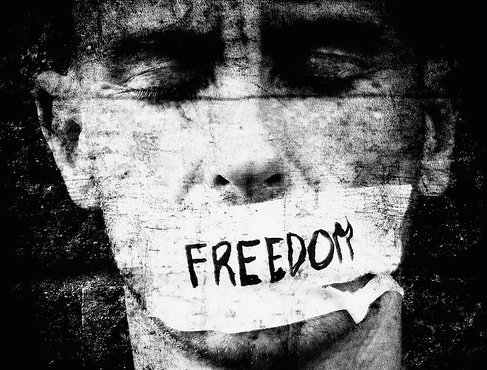
In the modern world, democracy is the prevailing form of government. Each country has its own history of combatting monarchy, colonialism, or other brands of authoritarianism to achieve democracy and has created its own constitution to guarantee the rights of life, liberty, and property of the citizens. However, recently, governments around the world, instead of protecting their citizens’ rights, have appropriated their own citizens’ freedom of speech, specifically in South Korea and the U.S.

In the beginning of September, South Korea’s two biggest television stations, Korean Broadcasting System (KBS) and Munhwa Broadcasting Corporation (MBC), went on a strike. The labor forces of the two stations initiated it, demanding the current CEOs, who were appointed by the ex-president, Park Geun-hye, to resign from their positions. Since both KBS and MBC are state-run television stations, the government usually appoints the executives, but the Park administration (part of the conservative Sae-nuri Party) was accused of censoring and intervening excessively with the production of state-run stations. The strike caused the two stations’ most popular TV shows and drama series to stop airing, yet South Korean citizens were still mostly in favor of the strike. Why did this happen?

From 2008 to 2016 during which the conservative party, led by President Lee Myung-bak and Park Geun-hye, was head of state, false information in news, blacklists, and censorship were continuously implemented. A myriad of victims suffered from the oppression of freedom of speech. The strike on September, 2017 began with the recent discovery of a blacklist during Lee Myung-bak administration. The blacklist contained 82 names of actors, artists, directors, and comedians. The reason why these people were on the blacklist was very simple: they publicly criticized the government on mass media. Once placed on the list, they, unbeknownst to them, were prohibited from appearing on television. As one broadcaster on the blacklist said, “Even when I pleaded some people working in the broadcasting companies, they said that my appearance on TV was ‘not liked’ by the executives.” The South Korean actress, Kim Gyu-ri, posted a picture of the blacklist on her Instagram and wrote, “Because of these few words, my beautiful thirties is already over… Ten years of such important time in my life just vanished…”
This phenomenon where innocent people are accused of subversive actions against the government and subsequently lose their jobs or suffer professional discrimination is not unique to South Korea. It has a specific term, which was coined more than half a century ago in the United States: McCarthyism. Now infamous, Joseph McCarthy was a U.S. senator during the 1940’s and 50’s, an era where anti-communism beliefs were prevalent. Citizens feared that communists had infiltrated the U.S, so people often “witch-hunted” or accused people of being communists or sympathizing with the communists. Then, McCarthy threw the entire country into a panic when he claimed that the names on his list of 205 people, including actors, authors, and activists, were secretly all communists. From his unsubstantiated yet serious accusations, people lost their jobs, and in extreme cases, were exiled from the country. Now, the term McCarthyism is generally used to describe the practice of falsely accusing people of conspiring against the government, and although large-scale witch hunts rarely happen anymore, making blacklists, depriving people of their freedom of speech, and censoring mass media still exist in various parts of the world.
The recently elected U.S. president Donald Trump was also involved with censoring anti-Trump comments and intervening in people’s rights to freedom of speech. The Trump administration approached Facebook and demanded personal information about three anti-Trump activists. The activists’ demonstration plan was eventually passed into Trump’s hands; as a result, more than 200 people were imprisoned for attempting to initiate a “violent demonstration” which would have originally been a peaceful, verbal one. The government’s action was criticized by the citizens as “overreaching by seeking vast amounts of information” and restricting people’s freedom of speech.
Now, many people believe that they do not live in a society deprived of rights anymore, but these recent cases affiliated with censorship and McCarthyism may alarm them. Regarding the blacklist incident in South Korea, upon reading the anecdotes of the victims on Lee Myung-bak’s blacklist, Korean citizens were outraged and disappointed, but not surprised at all. The citizens already knew that the two presidents from the conservative party frequently censored news which could hurt their reputations. In 2017, Moon Jae-in from the liberal party was elected to be the next president, and the citizens are very optimistic. Korean citizens who are exhausted from the oppression and the failures of Lee Myung-bak and Park Geun-hye believe that the new president can lead the troubled nation to a new path, where citizens’ inalienable rights are protected and life conditions are improved. Yet, we need to always be vigilant of the government, so we are not relinquishing our inalienable rights.
For more information, please visit independent.co.uk, dispatch.co.kr, and news.cgtn.com.
19 thoughts on “Vanishing Freedom of Speech: We Need it Back”
Sorry, comments are closed.